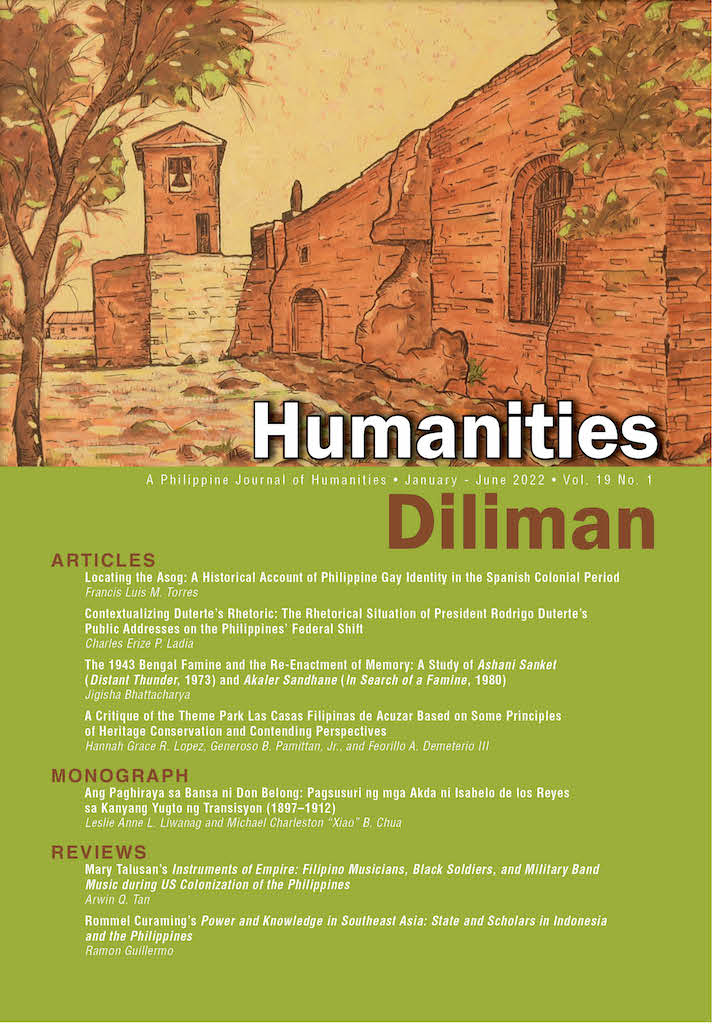Locating the Asog: A Historical Account of Philippine Gay Identity in the Spanish Colonial Period
Abstract
The paper investigates the asog, which is arguably the earliest representation of Cebuano gay identity in the Philippines, within the Spanish colonial period. Specifically, it evaluates how this identity has been shaped within its socio-cultural and economic milieus. By using critical content analysis, this study examines two chronicles and five dictionaries to see how the asog was inscribed during the Spanish colonial rule in the Philippines. Findings show that the asog was described by priests as a cross-dressing effeminate shaman who performed Satan’s bidding by spreading false news and stealing gold from the natives. However, the asog’s definition changed in the late nineteenth century as it became exclusively religious, while its association as an effeminate man became more secular and nationalistic. In this light, the study attempts to examine the social conditions that form today’s Philippine gay identities—an issue that is largely underexamined—and how these subvert Western models of gender and sexuality as well as processes in linguistic translation. This paper intends to rearticulate the effects of writing and colonialism that influence current attitudes and perceptions toward Filipino gays.


